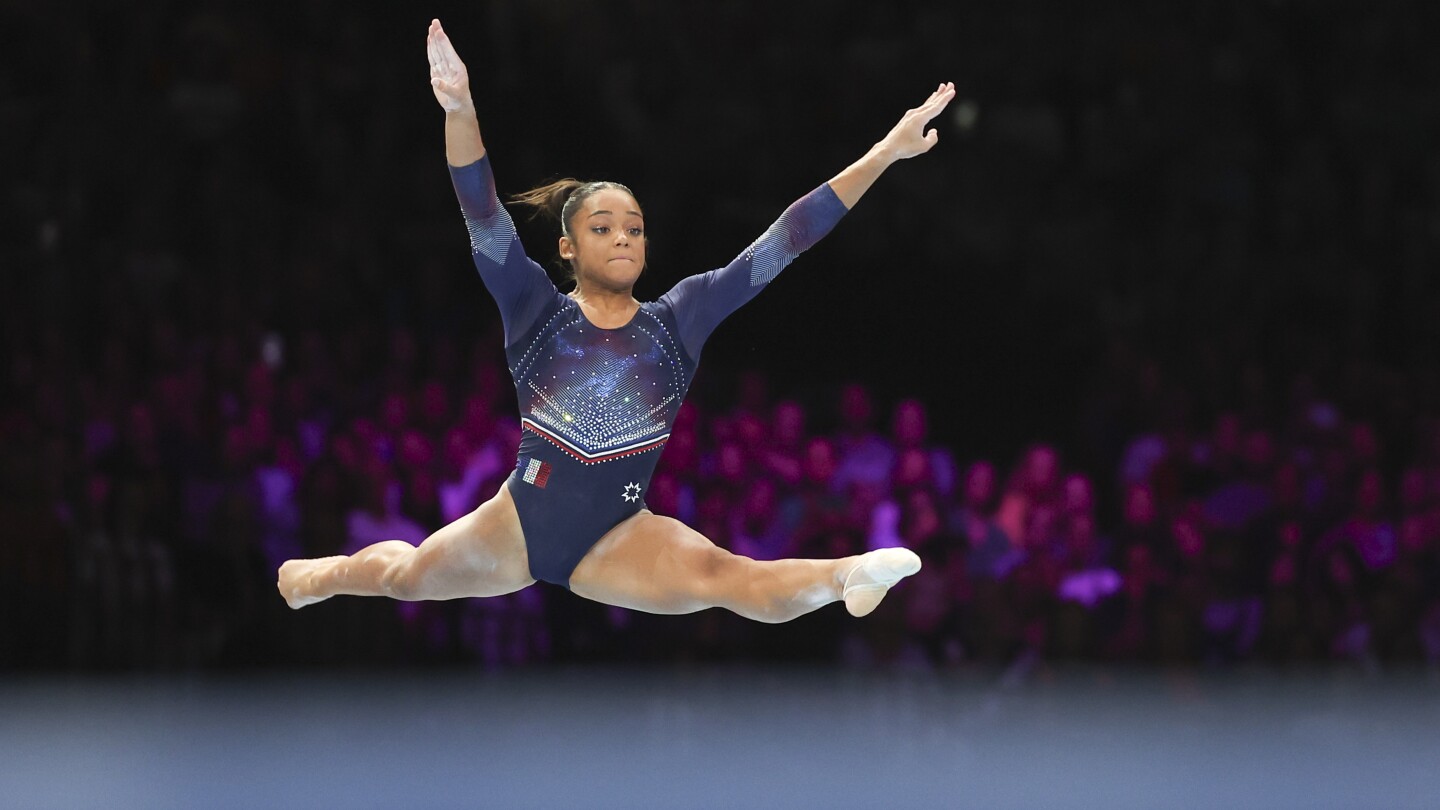PARIS (AP) — For a moment at the World Championships in Antwerp last year, no one knew where the female French gymnasts had gone. In an environment where military-style rules have been the norm for decades, it felt unusual, even surreal.
The athletes had not gone too far. They were simply enjoying some free time as part of a new approach aimed at improving mental preparation and helping athletes deliver under pressure — like at the upcoming Paris Olympics.
It seems to be bearing fruit.
The women excelled in the Belgian port city to become the first French team since 1950 to win a team medal. They took third behind the Simone Biles-led United States and second-place Brazil.
“It’s been very good for us, it is giving us confidence and helped us finish third at the world championships,” said Marine Boyer, who will be competing in her third Olympic Games. “Before that, there was no real dialogue with the coaches.”
Boyer will defend the French colors in Paris alongside Melanie de Jesus dos Santos — who has been training with Biles in Texas over the past two years — Coline Devillard, Morgane Osyssek and 16-year-old Ming Gherardi van Eijken.
There is no doubt that the group is full of technical quality and experience, with previous Olympic appearances and numerous national and continental medals won as a team and individually.
Paris Olympics
- The Olympics are more than fun and games. They’re a billion-dollar business with political overtones.
- Breakdance will make it’s debut as an Olympic sport in Paris.. Here’s what else will be different at this year’s games.
- Follow all of AP’s coverage of the Summer Games.
But until Antwerp, the French gymnasts’ talent had not translated into a team medal on the biggest stage. At the last Olympics in Tokyo, the team finished sixth.
According to Martine George, the coach overseeing the team’s Olympic preparations, hiring psychologists from outside the federation to work on mental preparation and create a positive environment was a turning point last year.
She said it helped coaches move away from the traditional authoritarian training methods that have long prevailed in France, to individualize each athlete’s training program and improve communication between gymnasts and coaches.
“That is the thing that changed and allowed us to have the success we had in Antwerp, that’s for sure,” George told The Associated Press. “I can see it has changed the lives of the gymnasts, it has changed their daily training environment.”
Marie de Saignes, one of the mental coaches working with the French gymnasts, said something clicked during a training camp in western France in the summer of 2023. There, she asked the gymnasts what their needs were and what they found intolerable. She then asked the coaches what kind of behavior they thought would make their athletes excel.
“It had never been done before, to get the athletes to express their views on what they were going through,” she said. “And there was this cry from the athletes: ‘Trust us, give us more autonomy and don’t add stress to the stress. We know what we need to do.’ The coaches heard them.”
Athletes and coaches now discuss each athlete’s individual needs. During debriefs, the gymnasts speak more freely. During competitions, coaches refrain from sharing their scoring calculations and other minor details that they feel would improve the athletes’ notes but, very often, could instead disturb the gymnasts.
“Everyone knows what they have to do. If someone needs something, they say so. It’s really healthy and really cool,” said vault specialist Devillard.
The coaches have also worked on their own behavior to improve their body language and make sure they don’t pass on their own stress to the athletes. And at competitions, the gymnasts are enjoying a lot more freedom.
“We can do more things than we used to. We can go out into the city, which is something we didn’t do before. It’s better than going back and forth from the hotel to the gym all the time,” Devillard said. “We’re big girls, we know how to manage ourselves, we know what it’s like, we’re not going to do anything stupid before a big competition. It’s all about confidence.”
The French recently suffered a major setback, though.
One of their coaches, Dumitru “Nellu” Pop, was suspended by the French sports ministry just four months before the Olympics after being accused of “violence and mistreatment of athletes.” Pop, who is from Romania, was close to some of the athletes and had shown a keen interest in the new mental work being introduced with the Olympic team. The federation was forced to organize a new training set up and brought in Valentin Potapenko, an expert in acrobatics and vaulting.
“It’s certainly not easy to have to change everything so close to the preparation,” George said. “But the girls are very resilient. I’ve seen them adapt and change and carry on in a way that is very impressive.”
Devillard said she the suspension of Pop was difficult to deal with in the buildup to the Games.
“But we’re still here, we can be proud of what we’ve done so far. And it’s not over yet,” she said.
___
AP Summer Olympics: https://apnews.com/hub/2024-paris-olympic-games

